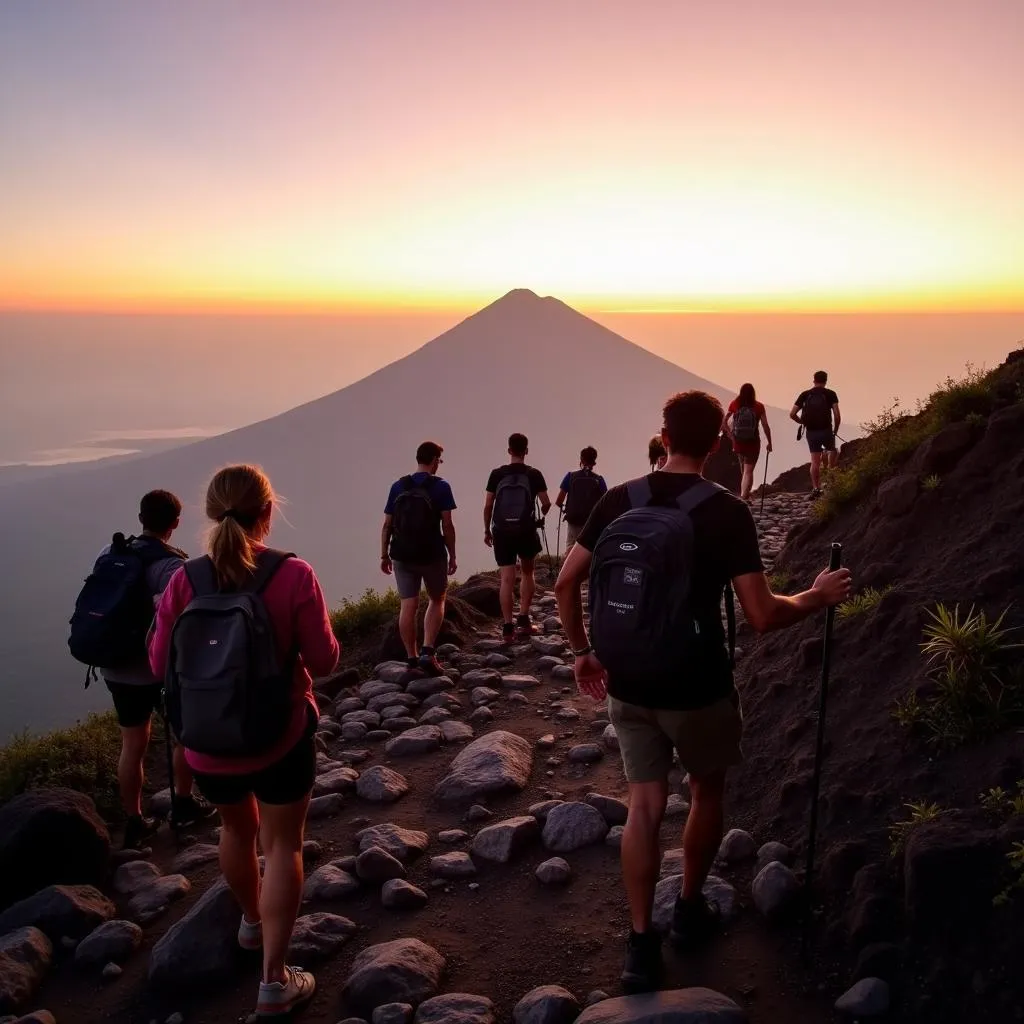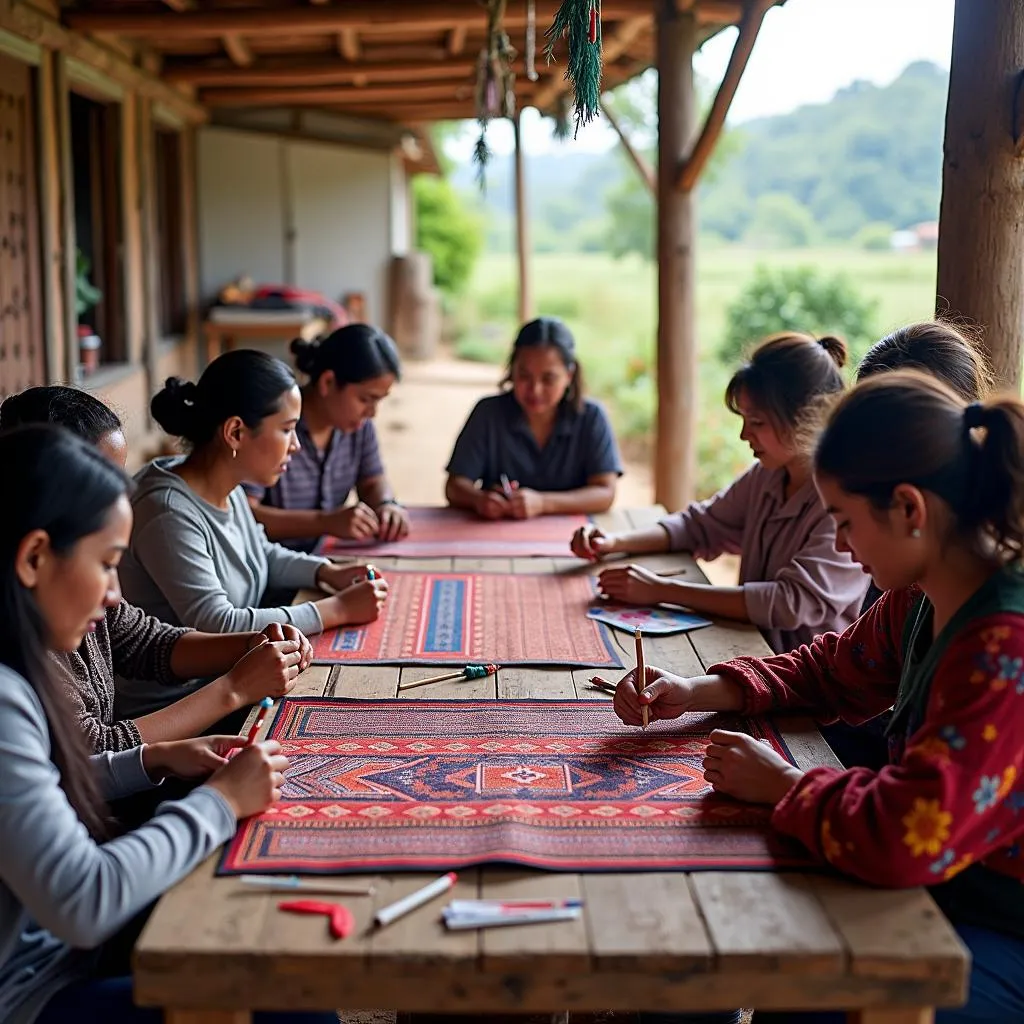Planning and describing a memorable holiday is a common task in IELTS Speaking exams. This topic has appeared frequently in past tests and is likely to remain relevant in future exams. To help you excel in this task, let’s explore some effective strategies and sample answers for each part of the IELTS Speaking test.
Part 1: Introduction and Interview
In this section, the examiner may ask you some general questions about holidays. Here are a few examples:
- Do you like going on holidays?
- How often do you go on holiday?
- What kind of places do you like to visit on holiday?
Let’s look at a sample answer for the first question:
Examiner: Do you like going on holidays?
Sample answer (Band 7-8):
“Absolutely! I’m quite passionate about traveling and going on holidays. It’s a fantastic way to recharge my batteries and broaden my horizons. I find that exploring new places and experiencing different cultures really helps me gain perspective on life and creates lasting memories.”
Part 2: Long Turn
Here’s a sample cue card related to describing a memorable holiday:
Describe a memorable holiday you took
You should say:
- Where you went
- Who you went with
- What you did there
- And explain why it was memorable
Sample answer (Band 8-9):
“I’d like to tell you about an unforgettable holiday I took to Bali, Indonesia, a couple of years ago. I went there with my best friend, Sarah, for a week-long adventure that turned out to be one of the most enriching experiences of my life.
Bali is renowned for its stunning landscapes, rich culture, and warm hospitality, and it certainly lived up to its reputation. We divided our time between exploring the bustling streets of Ubud and relaxing on the pristine beaches of Nusa Dua.
One of the highlights of our trip was a sunrise hike up Mount Batur, an active volcano. The trek was challenging, but the breathtaking views from the summit made it all worthwhile. We also immersed ourselves in the local culture by attending a traditional Balinese dance performance and participating in a cooking class where we learned to make authentic Indonesian dishes.
What made this holiday truly memorable was the perfect balance of adventure and relaxation. We had the opportunity to push our boundaries with activities like white-water rafting and snorkeling, but we also found time to unwind and rejuvenate at a luxurious spa resort.
The warmth and friendliness of the Balinese people left a lasting impression on us. Their genuine smiles and willingness to share their culture made us feel welcome and connected to the place.
This holiday stands out in my memory because it was a perfect blend of cultural exploration, adventure, and relaxation. It opened my eyes to a different way of life and left me with a deep appreciation for Balinese culture. The experiences we shared and the memories we created have strengthened my friendship with Sarah and given us stories we’ll be recounting for years to come.”
 Memorable holiday in Bali – Sunrise hike on Mount Batur
Memorable holiday in Bali – Sunrise hike on Mount Batur
Follow-up questions:
- How did this holiday impact your perspective on travel?
- Would you recommend Bali as a holiday destination to others? Why or why not?
Sample answer for question 1 (Band 8-9):
“This holiday had a profound impact on my perspective on travel. It made me realize that the true value of traveling lies not just in seeing new places, but in immersing oneself in different cultures and stepping out of one’s comfort zone. The experiences in Bali broadened my horizons and made me more open-minded and adaptable. Since then, I’ve been more inclined to seek out authentic cultural experiences and interact with locals when I travel, rather than just visiting tourist hotspots.”
Part 3: Two-way Discussion
Examiner: How do you think the tourism industry has changed in recent years?
Sample answer (Band 8-9):
“The tourism industry has undergone significant transformations in recent years, largely driven by technological advancements and changing consumer preferences. One of the most notable changes is the rise of digital platforms that have revolutionized how people plan and book their travels. Websites and apps like Airbnb and Booking.com have disrupted traditional hospitality models, offering travelers more diverse and often more affordable accommodation options.
Moreover, there’s been a shift towards more experiential and sustainable tourism. Many travelers, especially younger generations, are now seeking authentic, immersive experiences that allow them to connect with local cultures and contribute positively to the destinations they visit. This has led to the growth of eco-tourism and community-based tourism initiatives.
Social media has also played a crucial role in shaping the industry. Instagram-worthy destinations have gained popularity, sometimes leading to overtourism in certain locations. On the flip side, social media has also helped promote off-the-beaten-path destinations, distributing tourism more evenly.
The COVID-19 pandemic has, of course, had a profound impact on the industry, accelerating certain trends like the preference for domestic travel and outdoor activities. It has also heightened the focus on health and safety measures in travel, which is likely to remain a priority for the foreseeable future.
Lastly, there’s been a growing emphasis on personalization in travel experiences. Advanced data analytics and AI are enabling travel companies to offer more tailored recommendations and services, enhancing customer satisfaction and loyalty.”
 Sustainable tourism supporting local community
Sustainable tourism supporting local community
Key Vocabulary and Phrases for High Scores
-
Unforgettable experience /ʌnfəˈɡetəbl ɪkˈspɪəriəns/ (adj. + noun): An event or occurrence that cannot be forgotten.
Example: “The safari in Kenya was an unforgettable experience that I’ll cherish forever.” -
To broaden one’s horizons /ˈbrɔːdn wʌnz həˈraɪznz/ (phrase): To expand the range of one’s knowledge, interests, or experiences.
Example: “Traveling to different countries has really helped broaden my horizons.” -
Cultural immersion /ˈkʌltʃərəl ɪˈmɜːʃn/ (noun): The act of surrounding oneself in a different culture to learn about and experience it firsthand.
Example: “The homestay program offered a unique opportunity for cultural immersion.” -
Off the beaten track /ɒf ðə ˈbiːtn træk/ (idiom): In or to an isolated place; away from frequently traveled routes.
Example: “We prefer to explore destinations that are off the beaten track to avoid tourist crowds.” -
To recharge one’s batteries /rɪˈtʃɑːdʒ wʌnz ˈbætəriz/ (idiom): To rest and relax in order to restore one’s energy and enthusiasm.
Example: “I took a week off work to recharge my batteries at a peaceful mountain retreat.”
Examiner’s Advice
To score high in the IELTS Speaking test when describing a memorable holiday:
-
Practice extensively: Regularly describe different holidays and travel experiences to friends or in front of a mirror.
-
Develop a bank of travel-related vocabulary: Learn and use a variety of descriptive words and phrases related to travel, culture, and experiences.
-
Structure your answer: For Part 2, organize your thoughts according to the cue card prompts. Use clear transitions between ideas.
-
Provide specific details: Instead of general statements, give concrete examples and vivid descriptions to make your answer more engaging and authentic.
-
Express opinions and emotions: Don’t just state facts; share how the experience made you feel and what you learned from it.
-
Work on fluency: Aim for smooth delivery without long pauses. Use fillers naturally if you need time to think.
-
Improve pronunciation: Pay attention to word stress and intonation, especially for travel-related vocabulary.
-
Extend your answers: In Part 3, develop your ideas fully and consider different perspectives on the topic.
By following these tips and continuously practicing, you’ll be well-prepared to describe a journey you will never forget or any other travel-related topic in your IELTS Speaking test. Remember, the key is to speak confidently and demonstrate your language skills while sharing your experiences and thoughts.


